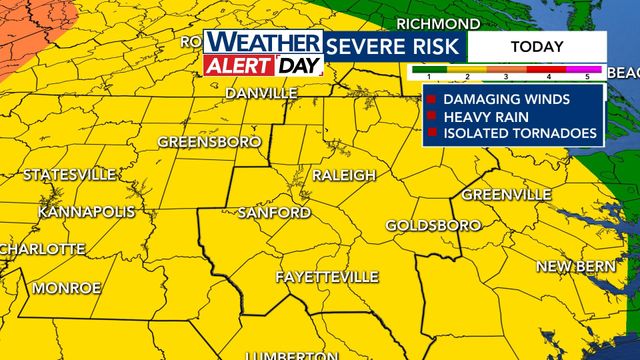No penalty for BlueCross NC after insurer lowers price for common HIV/AIDS drugs
A federal investigation into North Carolina’s largest health insurer ended with no penalty after Blue Cross Blue Shield NC was accused of charging more for drugs, even generics, in a way that discriminates against some users.
The tactic, known as "adverse tiering" became more prevalent in 2014 for HIV/AIDS and hepatitis B and C medications.
In December 2022, advocacy groups North Carolina Aids Action Network and HIV+Hepatitis Policy Institute filed a complaint with the U.S. Department of Health and Human Services Office of Civil Rights (OCR) alleging that BCBSNC was “engaging in unlawful discriminations on the basis of disability (HIV)” and “designing its drug formulary in a discriminatory manner.”
Those enrolled in Blue Cross NC’s Blue Advantage Bronze 5500 plan had been paying 50% of the cost of the drugs after a $5,500 individual or $11,000 family deductible was met.
In April 2023, BCBSNC notified members 48 HIV medications, including generics, were lowered to other tiers, resulting in lower out-of-pocket costs.
Co-pays for the same medications would be capped $25 for Tier 2, $75 for Tier 3 and $150 for Tier 4.
Six months after the company made the change and 10 months after the initial complaint was filed, the OCR began its investigation. According to the investigation, Blue Cross NC provided all of the necessary documentation to the agency on Oct. 2, 2023, and Jan. 26, 2024.
The OCR sent a letter to the complainants on Feb. 6, 2024, letting them know the investigation had been closed “based on the foregoing corrective action” taken by Blue Cross NC. The letter read in part, “OCR is closing this complaint with no further action.”
Those behind the initial complaint say they were pleased Blue Cross NC lowered the life-saving medications to other tiers, but disagreed with the OCR’s decision to close the investigation without penalty.
"We file a complaint, we look forward to receiving something and yet we get basically a slap on the wrist, if that! I don’t even really think it was a slap on the wrist,” explained NCAAN’s Executive Director Veleria Levy.
Levy expressed concern that the tiering structure hadn’t been addressed sooner and worried no punishment could leave the door open for issues with other insurers.
"We look to our insurance commissioners to be able to protect the people of our state as well as federally,” she stated. “We understand that there are quite a few health plans, and we understand there are things going on at the General Assembly here in North Carolina, as well as on the federal level, but the job of the commissioner is to catch this before it happens.”
In a statement to WRAL News, Blue Cross NC stated it is committed to ensuring members “have access to safe, effective and affordable prescriptions when they need them.”
The insurer said the decision to change the tiers of HIV medications came as “part of a regular review process.”
A spokesperson for the company wrote, “Last year, a change we implemented streamlined drug tiering across multiple drug and condition categories, and because of the changes, members may have lower out-of-pocket costs when purchasing a prescription.”
The company tells WRAL News it “stands against discrimination of any kind” and works with state and federal regulars to ensure plans are in compliance with the law each year.
According to the complaint, approximately 37,000 North Carolinians are living with HIV. Black individuals make up 58% of new diagnoses in the state; 13% of new diagnoses are in Hispanic people and 24% are white people. At the same time, white people make up 66% of PrEP (HIV) medication users. Only 26% of PrEP users are Black and 6% are Hispanic.









